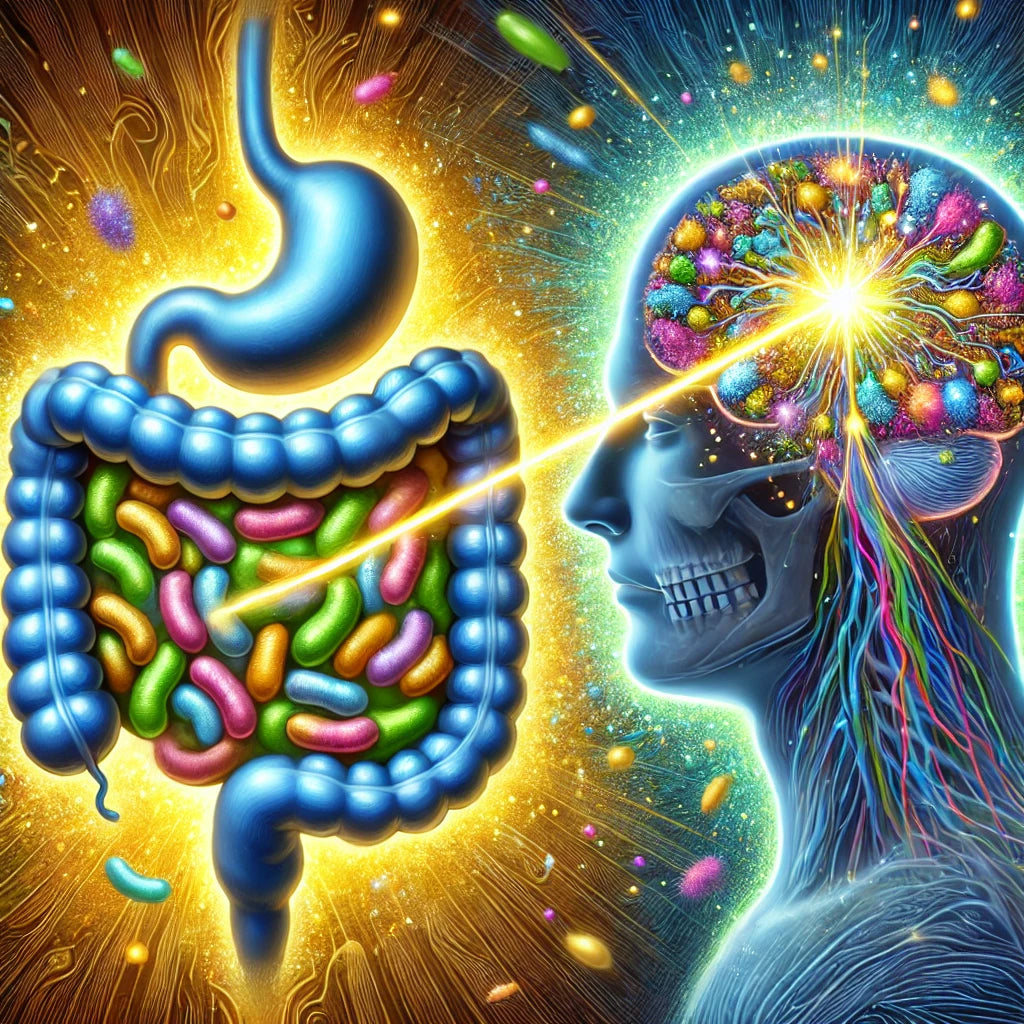
How Nutrients Shape Your Brain, Mental Health, and Physical Performance
Share
How Nutrients Shape Your Brain, Mental Health, and Physical Performance
We’ve followed the journey of nutrients from the soil to your food, through your gut, and into your bloodstream. Now, let’s explore the final stage: how these nutrients influence your brain, mental health, and physical performance. This is where the relationship between soil health, food, and human vitality becomes undeniable.
The Brain: Your Body’s Nutritional Powerhouse
The brain is a small organ in terms of weight, but it consumes about 20% of your body’s energy. Its functions—thinking, memory, mood regulation, and coordination—rely on a constant, high-quality nutrient supply. Here’s how:
-
Omega-3 Fatty Acids for Cognitive Function
These healthy fats, found in foods like nuts, seeds, and fish, are essential for brain cell membranes. Omega-3s improve memory, concentration, and learning by enhancing neuron communication and reducing inflammation. -
B Vitamins for Mood and Energy
B vitamins like B6, B9 (folate), and B12 are critical for producing neurotransmitters such as serotonin, dopamine, and GABA. These neurotransmitters regulate mood, helping to combat depression and anxiety. -
Antioxidants to Combat Oxidative Stress
Nutrient-dense foods are rich in antioxidants like vitamins C and E, as well as polyphenols from plants. These compounds protect brain cells from damage caused by oxidative stress, which is linked to cognitive decline and conditions like Alzheimer’s disease. -
Magnesium for Mental Calm
Found in leafy greens and nuts, magnesium helps regulate stress by calming the nervous system and supporting healthy sleep patterns.
Mental Health: The Gut-Brain Connection
The state of your mental health is closely linked to your gut health. This connection, known as the gut-brain axis, demonstrates how food and soil health influence your mood and emotions:
- Serotonin Production: About 90% of serotonin, the “happiness hormone,” is produced in the gut. Nutrient-dense, fiber-rich foods from healthy soil support gut bacteria that aid serotonin production.
- Reduced Inflammation: A nutrient-rich diet lowers systemic inflammation, which is often linked to depression and anxiety.
- Improved Stress Response: Balanced gut bacteria, supported by prebiotic and probiotic foods, improve the body’s response to stress.
Physical Performance: Fueling Your Body
Whether you’re running ultramarathons or going about daily activities, the nutrients in your food directly impact your physical performance.
-
Carbohydrates for Energy
Complex carbohydrates from whole grains and vegetables provide sustained energy. These carbs are better absorbed when the food is nutrient-dense, ensuring efficient glycogen replenishment for muscles. -
Protein for Repair and Growth
Amino acids from high-quality proteins support muscle repair, immune function, and hormone production. Regeneratively grown crops like legumes and nuts offer superior protein quality. -
Electrolytes for Hydration
Minerals like potassium, magnesium, and sodium, abundant in nutrient-rich produce, regulate hydration and muscle function. -
Iron for Oxygen Transport
Iron, crucial for delivering oxygen to muscles and tissues, is more bioavailable in nutrient-dense foods.
Long-Term Health: Building Resilience
A diet rooted in regenerative farming practices doesn’t just provide immediate benefits—it builds long-term resilience against chronic diseases and promotes longevity.
- Reduced Risk of Chronic Illness: A nutrient-rich diet lowers the risk of diabetes, heart disease, and neurodegenerative disorders.
- Stronger Immune System: A balanced nutrient intake supports immune function, making the body more resilient to infections and illnesses.
- Enhanced Recovery: Nutrients like zinc and vitamin C speed up tissue repair and recovery after illness or injury.
The Soil-Brain-Body Connection
When we nourish the soil, we nourish ourselves. Healthy soil leads to nutrient-dense food, which fuels the intricate systems of the body and brain. This interconnected system demonstrates that the health of the Earth is inseparable from human health.
By supporting regenerative farming, we’re not just feeding ourselves better—we’re investing in a future where mental clarity, physical vitality, and emotional well-being are accessible to all.
In the next article, we’ll explore practical steps you can take to prioritize nutrient-rich foods and advocate for healthier farming practices in your everyday life. Stay tuned!
Next Article: The Power of Superfoods and the Consequences of Disrupted Nutrient Pathways
